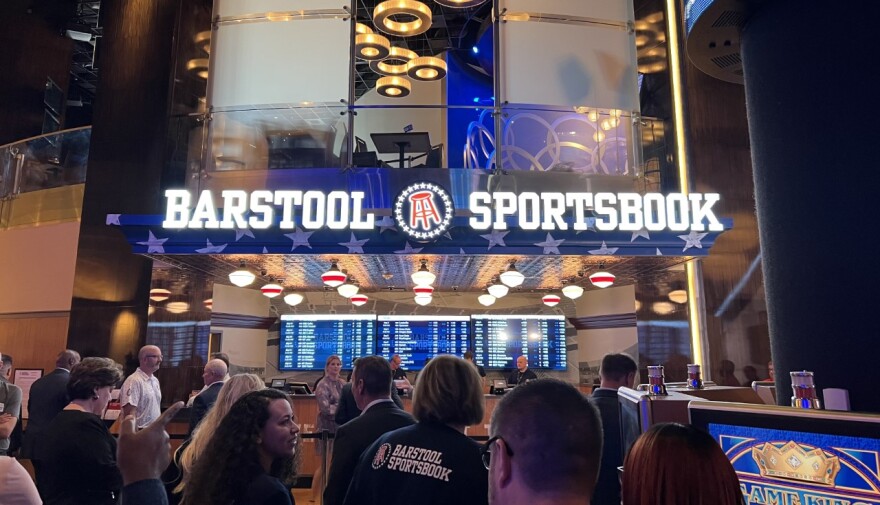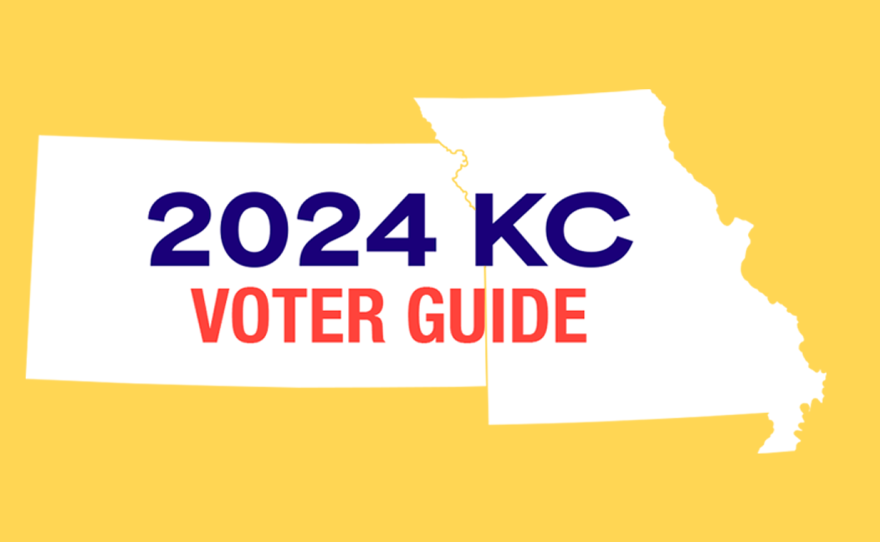Missourians could soon legally bet on sports from their own homes — instead of driving to Kansas or Illinois to place bets.
Legalizing sports wagering will appear as Amendment 2 on the Nov. 5 general election ballot. Missourians 21 or older would be allowed to bet if it passes. Read the full amendment here.
Here’s what you need to know about the vote.
What does voting yes on Amendment 2 mean?
Voting yes would legalize sports betting in Missouri, joining 38 other states and the District of Columbia in permitting some form of sports betting. That means online apps, casinos and gambling boats could allow Missourians to bet on Patrick Mahomes or other professional or college sports.
Any bet would have to be placed in the state, whether that’s in a casino or on a phone app.
Voting no would keep the status quo in Missouri.
Can sports betting become legal if Amendment 2 fails?
Sports betting could still be legalized in Missouri if the amendment fails. But it would require the Missouri General Assembly and the governor to legalize the practice. So far, Missouri lawmakers have failed to agree on a way to do so.
The holdup isn’t related to sports betting. The political gridlock is over video lottery terminals. These casino-like machines are sprinkled all over the state in gas stations and truck stops. Lawmakers have yet to agree on whether these should be regulated along with sports betting.
Amendment 2 doesn’t address video lottery machines.
What regulations exist if sports betting is legalized?
The sports betting amendment includes these regulations:
- A ban on advertising to minors.
- Background checks for people/companies applying for a sports betting license. People convicted of felonies or gambling offenses can’t run the operations.
- Promoting information on problem gambling on websites and apps.
Failure to comply with state regulations could bring a $50,000 fine. Repeat violators could be fined $100,000. A company’s license also could be placed on probation or revoked.
The Missouri Gaming Commision will regulate the sports betting industry, like it does with casinos. If the measure is passed, state lawmakers can further regulate the industry, said Jan Zimmerman, chair of the Missouri Gaming Commission.
The vote amends the state constitution, so some items — like the 10% tax rate on betting revenue — couldn’t be amended without another constitutional amendment.
The gaming commission can’t make new laws.
“All we do is either enforce or create rules and regulations to provide oversight when the legislature passes a law,” Zimmerman said.
Where does the money go?
The state estimates sports betting could generate nearly $29 million a year for Missouri.
Of that, $5 million would go into a fund to prevent gambling addictions. The remaining money — an estimated $24 million — would go to public schools and higher education.
That revenue estimate is based on a 10% tax on adjusted gross revenue proposed in the amendment.
Adjusted gross revenue is not the total amount wagered and it is not the total amount of money made by sportsbooks. Sports betting companies would be allowed to exclude winnings that are paid out and promotional bets from being taxed, which keeps more money in the industry’s coffers.
Promotional bets are when a company offers someone free money to start placing bets. DraftKings, for example, will give someone $200 if they place a $5 or more bet on their app, whether they win or lose the wager. In Kansas, that money is 100% exempt.
Those are not taxable so long as they are less than 25% of the company’s revenue that month.
Who opposes/supports sports betting?
Every major professional sports team in Missouri supports betting, as do sports betting companies. The Winning for Missouri Education campaign raised $6.5 million as of mid-August.
A lawsuit was filed by political consultants Blake Lawrence and Jacqueline Wood to take the amendment off the ballot. It alleges that the secretary of state used the wrong maps when determining whether six of the eight congressional districts met the minimum signature count.
Citing recently redrawn maps, the lawsuit contends the state’s 1st Congressional District would fall short.
How quickly can I bet on sports if Amendment 2 passes?
The gaming commission will establish a start date, which will come no later than Dec. 1, 2025.
Zimmerman said other states have laid out a clear set of regulations that Missouri could follow.
But sports betting has to be offered through licensed companies, which means background checks by, and applications to, the state gaming commission. Zimmerman said it’s possible betting could start before Dec. 1, 2025.
“It may take us a minute to make sure that we’re ready to bring that on,” said Zimmerman, who noted that the staff members who would set up sports betting’s regulatory framework all have full-time jobs without this additional work.
In Kansas, Gov. Laura Kelly signed sports betting into law on June 20, 2022. Kelly placed the first legal bet in Kansas on Sept. 1, 2022.
Assuming a similar timeline in Missouri, people could place legal sports bets in the state around mid-January — before the Super Bowl but after the first round of the NFL Playoffs.
This story was originally published by The Beacon, a fellow member of the KC Media Collective.






